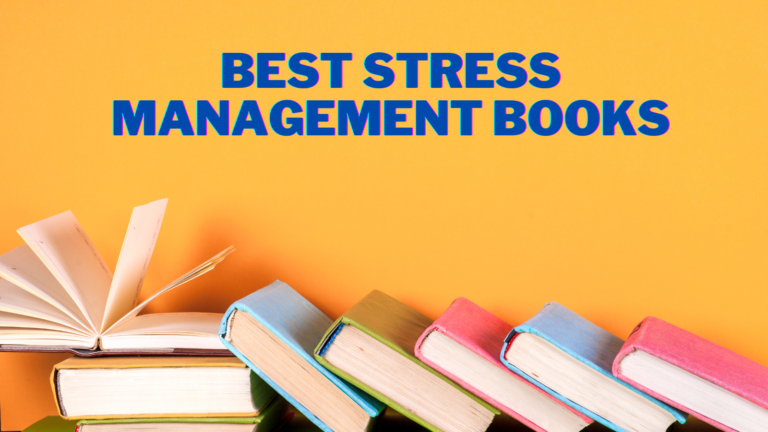Best Tips To Stop Worrying
Best Tips To Stop Worrying
Everyone has worries at some point, and it's a typical occurrence. It's natural to feel concerned about uncertain or stressful situations, but when worrying becomes excessive, it can negatively affect your mental and physical health.
The good news is that there are ways to stop worrying and regain control over your thoughts and emotions.
In this blog, we'll explore some helpful tips and strategies that you can use to reduce worry and live a more peaceful, fulfilling life.
From practicing mindfulness to challenging negative thoughts, we'll cover a range of techniques that can help you manage worry and anxiety.
Whether you're struggling with a specific issue or simply looking for ways to reduce stress daily, these tips can help you stop worrying and start living more fully.

What Is Worrying?
Worrying is a cognitive and emotional process that involves persistent thoughts and concerns about potential negative outcomes or events in the future.
It typically includes repetitive and intrusive thoughts, often exaggerated or unrealistic, about uncertain issues such as health, finances, relationships, or future events.
Worrying is accompanied by negative emotions like anxiety, fear, stress, and physiological responses in the body, such as increased heart rate and muscle tension.
It is future-oriented, involving “what if” scenarios and imagined catastrophes, and may arise from a perceived lack of control over the events being worried about.
Excessive worrying can interfere with daily life, impacting concentration, decision-making, sleep, and overall well-being.
While worry can be adaptive in some cases, chronic or excessive worrying can be distressing and may require intervention from mental health professionals for effective coping strategies.
One example of worrying could constantly be worrying about their financial future. They may have repetitive thoughts about potential job loss, inability to pay bills, or insufficient money for emergencies.
These thoughts may be exaggerated or unrealistic, and the person may experience anxiety, fear, and stress in response to these worries.
They may constantly imagine worst-case scenarios, such as homelessness or the inability to provide for their family.
As a result, they may have difficulty concentrating at work and making decisions, and experience disrupted sleep.
This excessive worrying about finances may impact their overall well-being and quality of life.
In this case, seeking support from a mental health professional can help the person develop effective coping strategies to manage their worries and reduce the negative impact on their daily life.

Various Types Of Worrying
People may experience various types of worrying. Some common sorts of worries include:
1. Generalized Anxiety
This worrying involves chronic and excessive anxiety about various issues, such as health, relationships, work, finances, etc.
It is often characterized by persistent and uncontrollable worry that can interfere with daily functioning.

2. Health Anxiety
Health-related worrying is focused on concerns about one's health or the health of loved ones.
It may involve excessive worry about physical symptoms, interpreting minor symptoms as serious illnesses, and constantly seeking reassurance or medical attention.
3. Social Anxiety
Social-related worrying involves excessive concerns about social interactions, such as fear of judgment, criticism, or embarrassment.
It may lead to avoidance of social gatherings or activities and can impact self-esteem and relationships.

4. Performance Anxiety
This worrying type involves excessive concerns about performance or competence in specific areas, such as work, school, or sports. It may result in fear of failure, perfectionism, and self-doubt.
5. Future-Oriented Anxiety
Future-oriented worrying is focused on potential negative outcomes or events that may occur in the future, such as financial instability, job loss, or relationship issues.
It may involve excessive planning, the anticipation of worst-case scenarios, and difficulty enjoying the present moment.

6. Existential Anxiety
This type of worrying involves concerns about the meaning of life and mortality and existential questions about the nature of existence, purpose, and human condition.
It may lead to pondering existential concepts and grappling with philosophical or spiritual dilemmas.
7. Relationship Anxiety
Relationship-related worrying involves excessive concerns about romantic relationships, friendships, or familial relationships.
It may include worries about trust, loyalty, conflicts, and uncertainty about the future of relationships.

8. Parental Anxiety
Parental-related worrying is focused on concerns about the well-being, safety, and development of one's children. It may involve worries about their health, education, social interactions, and prospects.

Tips To Stop Worrying
Worrying is a natural human response to uncertainty, but too much worrying can take a toll on your mental and physical health. Here are some tips that may help you stop worrying-
1. Identify The Source Of Your Worry
Worry is a natural human response to uncertainty and stress. While it is normal to experience occasional worry, persistent or excessive worry can harm our mental and physical well-being. Identifying the source of our worry can be an important first step in managing it effectively.
We can start by reflecting on our concerns to identify the source of our worries. Writing down our worries and thoughts can help us gain clarity and perspective. We can ask ourselves questions like:
- What specifically am I worried about?
- What is the worst-case scenario?
- Is this worry based on facts or assumptions?
- What evidence do I have to support this worry?
- Are there any other possible explanations or outcomes?
- Is this worry within my control or outside of my control?
We can better understand and break our worries into manageable pieces by answering these questions.
One important aspect of identifying the source of our worry is distinguishing between facts and assumptions.
Worry based on facts may be more grounded in reality and require a different approach than worry based on assumptions.
For example, seeking medical advice and treatment may be best if we are worried about a health issue.
However, suppose our worry is based on an assumption about our health, such as a fear of a serious illness, despite no evidence to support it. In that case, we may benefit from challenging our assumptions and reframing our thoughts.

2. Practice Self-Care
Self-care is essential for maintaining physical, emotional, and mental well-being. Self-care involves taking proactive steps to care for ourselves rather than waiting until we feel overwhelmed or burnt out.
By prioritizing self-care, we can reduce stress, improve our mood, and increase our resilience in life's challenges.
Self-care is taking care of our physical health. Sleep is essential for our overall well-being, and getting enough sleep can help us to feel more alert, focused, and productive.
Exercise is also important for maintaining physical and mental health and can help reduce stress and improve mood. A healthy diet can give our bodies nutrients to function at their best.
Another aspect of self-care is taking care of our emotional health. This includes engaging in activities that make us feel good.
This could be anything from spending time with loved ones to pursuing a hobby or creative pursuit. Activities can help reduce stress, boost mood, and increase overall well-being.
Self-care also involves setting boundaries and prioritizing our own needs. This could mean saying “no” to activities or commitments that do not serve us or taking time for ourselves when needed.
By setting boundaries and prioritizing our needs, we can better manage stress and reduce the risk of burnout.

3. Challenge Your Negative Thoughts
Challenging negative thoughts is important in reducing worry and anxiety. Negative thoughts can be overwhelming and can lead us to believe things that are not necessarily true.
By challenging our negative thoughts, we can learn to think more realistically and rationally and reduce our tendency to worry.
The first step in challenging negative thoughts is to become aware of them. This involves observing our internal dialogue and noticing when negative thoughts arise. Once we know our negative thoughts, we can begin to challenge them.
One effective way to challenge negative thoughts is to ask ourselves if they are based on facts or assumptions. Negative thoughts often stem from assumptions or beliefs that are not necessarily true.
By questioning these assumptions and looking for evidence to support or contradict them, we can begin to think more rationally and realistically.

4. Make A Plan
Making a plan is an effective way to reduce worry and anxiety about a specific problem or situation.
When faced with a challenging situation, it can be easy to become overwhelmed and feel helpless.
By breaking down the problem into small, manageable steps and focusing on what we can control, we can begin to take action and feel more empowered.
The first step in planning is identifying the problem or issue causing worry. Once we have identified the problem, we can break it down into smaller, more manageable steps.
This can help us see the problem in a more concrete and actionable way and reduce our sense of being overwhelmed.
Next, we can focus on what we can control. There may be some aspects of the problem that are outside of our control, but there are always things that we can do to take action and move forward.
By focusing on what we can control, we can begin to make progress and feel more empowered.

5. Talk To Someone
Talking to someone is an important step in managing worry and anxiety. Sharing our concerns with a trusted friend or family can help us gain perspective and solve our problems.
Having someone to listen to and provide support can be incredibly helpful in reducing our worries and anxieties.
Selecting someone supportive and non-judgmental is important when choosing someone to talk to. This can be a close friend, family member, or therapist.
It is important to feel comfortable with the person we talk to and trust that they will provide a safe and confidential space in which to share our concerns.
When talking to someone about our worries, it can be helpful to be as specific and detailed as possible.
This can help us to identify the root of our fears and address them more effectively. Exploring different perspectives and brainstorming potential solutions to our problems can also be helpful.

6. Limit Exposure To News And Social Media
Limiting news and social media exposure is important in managing worry and anxiety. Constant exposure to negative news and social media can trigger stress responses in our bodies, increasing our worry and anxiety.
In addition, social media can be a breeding ground for comparison and self-doubt, further exacerbating our worries and anxieties.
One way to limit our exposure to news and social media is to set boundaries around our use of technology.
This might include determining how much time we spend on social media each day, turning off notifications for news and social media apps, and avoiding the temptation to check our phones first thing in the morning or before bed.

7. Write Down Your Worries
Writing down your worries can effectively manage anxiety and reduce worry. When we are anxious, our minds can become overwhelmed with negative thoughts and worries, making it difficult to focus on anything else.
Writing down our worries can help us to gain perspective, organize our thoughts, and clear our minds.
One effective strategy is setting aside a specific time to write down your daily worries. This might be in the morning, before you start your day, or in the evening before you go to bed. During this time, write down everything worrying you, big or small.
Once you have written down your worries, set them aside until the next day. This can help you to mentally “close the book” on your worries and prevent them from consuming your thoughts throughout the day.
When you revisit your worries the next day, you may find that some of them no longer seem as significant or as problematic as they did the day before.

8. Take Breaks
Taking breaks throughout the day is important in managing worry and anxiety. When we are constantly busy and focused on our work or responsibilities, our bodies can become overwhelmed with stress and anxiety.
Regular breaks can help us recharge our energy, reduce our sense of overwhelm, and improve our overall well-being.
There are many different ways to take breaks throughout the day. One strategy is to take short, frequent breaks throughout the day rather than waiting until we feel overwhelmed.
This might include taking a 10-minute walk outside, stretching, or simply closing our eyes and taking a few deep breaths.

9. Use Relaxation Techniques
Relaxation techniques, such as deep breathing, progressive muscle relaxation, and meditation, can help calm your body and mind, reducing the physiological arousal associated with worrying.
Regularly practicing these techniques can also help you develop a greater sense of relaxation and resilience to stress.
Deep breathing involves taking slow, deliberate breaths in through your nose and out through your mouth, activating the relaxation response in your body.
Progressive muscle relaxation involves consciously tensing and relaxing different muscle groups to release tension.
Meditation is a mindfulness practice that focuses on the present moment, reducing racing thoughts and creating a sense of mental calmness.
Integrating relaxation techniques into your routine can be a proactive way to manage stress and promote overall well-being.
It's important to consult with a healthcare professional or qualified therapist if you have any underlying health conditions or concerns about using relaxation techniques.

10. Challenge Avoidance Behaviours
Avoidance behaviours, such as avoiding situations or activities that trigger your worries, can provide temporary relief but may perpetuate and intensify worries in the long run.
By gradually confronting these triggers with the guidance of a therapist or a trusted person, you can challenge avoidance behaviours and build confidence and resilience.
Engaging worries allows you to develop coping skills and tolerance for discomfort, which can boost confidence in managing future concerns.
Seeking professional help is important in this process to ensure it is done safely and effectively.

11. Limit Excessive Reassurance-Seeking
Limiting extreme reassurance-seeking behaviours involves recognizing the pattern of seeking reassurance, challenging the need for reassurance, practicing self-soothing techniques, developing coping strategies, gradual exposure to uncertainties, and seeking support from a trusted person.
By becoming aware of reassurance-seeking behaviours, understanding the underlying reasons, practicing self-soothing techniques, developing coping skills, gradually exposing yourself to uncertainties, and seeking support, you can reduce reliance on reassurance and gain more confidence in managing worries independently.

Conclusion
Worrying is a natural response to stress and uncertainty, but it can also be a destructive habit that negatively impacts our mental and physical health. Fortunately, several tips and strategies can help us stop worrying and find peace of mind.
- Firstly, it's important to identify the source of our worry and determine whether it's within our control. If it's something we can do something about, we can take action to address it. If it's beyond our control, we can practice acceptance and let it go.
- Secondly, we can try mindfulness and meditation techniques to help us stay grounded in the present moment and reduce anxiety. Deep breathing exercises and physical activities like yoga or walking can also be helpful.
- Thirdly, we can challenge and replace negative thoughts with positive ones. We can also practice gratitude by focusing on what we're grateful for.
- Finally, it's important to prioritize self-care and take time for ourselves. This can include getting enough sleep, eating a healthy diet, and engaging in activities that bring us joy and relaxation.
I trust you enjoyed this article about the Best Tips To Stop Worrying. Please stay tuned for more blog posts to come shortly.
JeannetteZ
>>>Please click here to read my all-inclusive article about Lessons That Will Teach You All About Stress<<<
>>>Are you interested in Natural Healing And Stress Relief through Herbs? Please click here for my #1 Recommendation<<<
Your Opinion Is Important To Me
Thoughts? Ideas? Questions? I would love to hear from you. Please leave me your questions, experiences, and remarks about the Best Tips To Stop Worrying in the comments section below. You can also reach me by email at Jeannette@Close-To-Nature.org.
Disclosure
This post may contain affiliate links. I earn from qualifying purchases as an Amazon Associate and other affiliate programs. Please read my full affiliate disclosure.
You might also enjoy these blog posts:
The Difference Between Worry Stress And Anxiety
9 Best Ways To Relieve Stress And Anger








